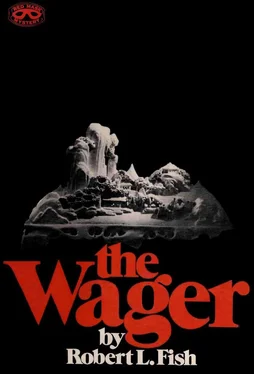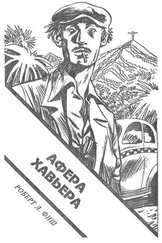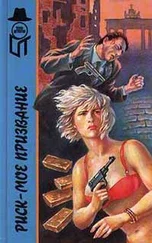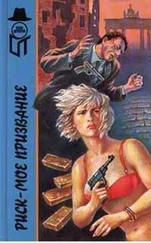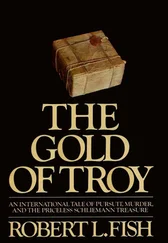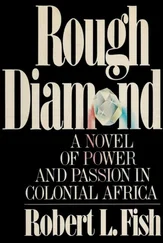The minibus had arrived. “I’ll be along a bit later,” Kek said, and tilted his head toward the drumming musicians, sweating in the hot sun. “I like steel drum. I’ll see you on board. Buy you that drink I owe you.”
Which you never drank, Jamison thought, suddenly bitter at the memory of the 66 Roof. He nodded abruptly and climbed into the bus, taking a seat near the door and leaning back, putting the events in Lauderdale from his mind, concentrating on his scheme, the details of which were clicking into place like obedient safe tumblers.
Behind him Huuygens watched the back of the minibus thoughtfully, and then bent to stow his package in the overnight bag.
Jamison was in the captain’s quarters exhibiting his credentials. The captain was only half-listening; he had a short leave coming up after this voyage and his mind was more on his farm than whatever this man was talking about. Smugglers or something. What with one cruise after another, he had planted his tomatoes and green peppers pretty late, and while the peppers were fairly safe, the tomatoes were bound to be a dubious proposition.
“We are positive,” Jamison was saying, investing in his person the full panoply of the Department’s power, “that this man is responsible for the stealing of the valuable carving, that he brought it aboard this ship, and that he is planning on trying to smuggle it into the United States. It is our firm intention to” — he almost said “foil,” but saved himself in time — “to stop him.” He bent down one finger as he started to outline his clever scheme. “First, I will need to know who, if any, passengers joined the ship here in Barbados. Other than this man Huuygens I’ve been telling you about, of course. Captain?”
“I beg your pardon?”
“I said,” Jamison added, an edge to his tone, “I need to know which passengers joined the ship here in Barbados, to return to New York.”
“It’s posted on the bulletin board in the purser’s square,” the captain said wearily. “C Deck.” He had a copy of the posting in a folder on his desk, but he hated to accommodate the lanky, horsefaced man across from him. In the captain’s opinion, if there were no Customs then obviously passengers would be happier, and happy passengers made for a happy ship. And a happy ship made for a happy captain. And a happy captain— He came out of it under Jamison’s most steely gaze, sighed, and reached for the folder. His finger slid down the page. “There was just one. His name is André Martins. He booked from Barbados, destination New York, three weeks ago.”
Jamison frowned. “He’s from Barbados?”
The finger moved to the right. “No. French national. His home is listed as Paris.”
Jamison’s frown disappeared. Despite his intention to maintain the discussion with the captain along calm, statesmanlike lines, he could not help but demonstrate his enthusiasm.
“Then I’ll bet he’s one of the gang! He came here for the robbery and now he’s accompanying Huuygens back to New York! Two to one he speaks French!”
“Being from Paris, I wouldn’t be surprised,” said the captain, and returned to his private thoughts. The radio shack kept him informed daily of Pennsylvania weather, but one never knew for sure just how much rain fell when the report said rain. Too much and it might have washed away that last batch of fertilizer; too little and possibly the tomatoes hadn’t even blossomed as yet. Being an absentee tomato-and-green-pepper grower had its problems.
Jamison, unaware that he did not have the captain’s full attention, went to bend down his first finger, found it already bent, and pushed down a second to join it.
“Next,” he said, “will be to thoroughly search their respective quarters—”
The captain came out of his reverie with a start. This he had heard. “Search the cabins of passengers? ”
“Oh, not by myself,” Jamison assured him earnestly. “I would want your security officer with me, of course. As a witness, if nothing else, to anything we might find.”
The captain seemed to finally realize he could not avoid the blasted problem. He sat more erect and leaned forward authoritatively, replacing green peppers and tomatoes in his mind with the question of having an internationally famous smuggler aboard his ship.
“Look,” he said reasonably, “you people have the equivalent of a young army on the dock in New York. They are paid — by the public, incidentally, which includes passengers — to be there for the sole purpose of searching baggage and to locate anything contraband. Our job on board this ship is to see that people are happy and having a good time. We are not paid to locate things people intend to smuggle.” A thought suddenly occurred to him; a touch of triumph entered his voice. “As a matter of fact, you don’t even know if people mean to smuggle until you have their declaration form in your hands, do you? They may well intend to declare and pay the duty.”
“You mean, declare and pay the duty on stolen goods?” Jamison asked smugly, proud of himself for having scored a distinct point. “On a valuable carving known throughout the world?”
“Well, no,” the captain admitted, wishing he had been more alert to that trap, and then realizing he had set it himself. “But you still haven’t given me the slightest proof that this man stole anything.” He stared at Jamison’s bruised eye. “Did you see him? Did anyone see him? All I have is your word on the thing.”
Jamison sighed. The captain was almost as bad as his superior.
“Look, Captain,” he said with a patience he was far from feeling, “if you insist, I can go through channels by radiotelephone and have my Department request permission for these searches from your company. This ship is, after all, still United States territory. Of course, asking in that manner will take time and probably interrupt a lot of your top company people in their more important duties, but I’m sure you’ll be able to explain to them why you didn’t let us make the search without any fuss.”
“I still think that searching—”
“For example,” Jamison went on, completely ignoring the captain’s weak interruption, “today is Saturday, but our Department works seven days a week. I can reach my superior by radio-telephone, and I’m sure he can locate the president of your line, probably out on the golf course—”
It had been a direct hit, and Jamison, seeing the expression on the captain’s face, knew he had been right. Outside of the Department, men simply weren’t trained to face crises.
The captain sighed deeply. He took off his cap, ran his fingers through his stubby gray hair, studied the insignia on the cap’s front as if seeing it for the first time, and then jammed it back on his head, tugging it straight. This horse-faced idiot across from him was right. After all, when one considered it from all angles, which was worse: approving a search by a Treasury man, under the eagle eye of his own trusted security officer, or facing the wrath of men to whom Saturday at the country club was sacrosanct? The truth was there was no choice. With the time he would lose in explanations — because in his company any questions at all instantly took on the form of an official inquiry that might have been instigated by the shipping board — he’d be lucky to get out to the farm at all on his short leave. And who would worry about his green peppers and tomatoes then? None of the principals involved, that was certain.
“All right.” He conceded defeat. He glanced at Jamison’s bruised face and a note of hope entered his voice. “However, if either this Huuygens or this Martins happens to come down to his cabin in the course of your search, don’t expect my security officer to leap to your rescue. You shall be on your own. I shall instruct my man to manage whatever excuse he can come up with, and then get to hell out of there, leaving you to your own devices. Is that clear?”
Читать дальше
